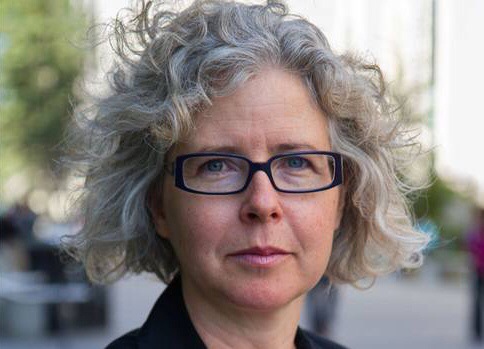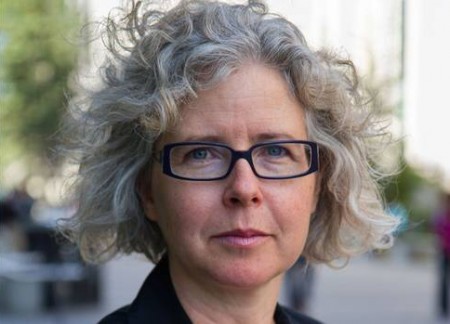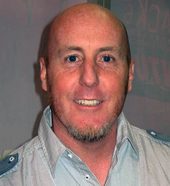Many thanks to Dr. Rebecca Sullivan for allowing us to publish her work. This is her inaugural contribution —
A righteously angry response to Margaret Wente
by Dr. Rebecca Sullivan
Institute for Gender Research
The University of Calgary
Once again, it seems that Canada is in the grips of a moral panic over pornography and sex work. The recent spate of sniggering stories on Canada’s porn specialty networks not meeting their Canadian content quota, the hand-wringing over the possibility of granting constitutional rights to self-determining sex workers, and now faux-outrage over the upcoming Feminist Porn Conference point to a troubling insecurity over sex and sexuality in our national media and public life.
We’re are constantly being told, “sex sells,” and prurient news outlets that dangle “dirty sex” enticingly before us, only to snatch it away with dire warnings that civilization cannot possibly endure if we continue to be fascinated by such “self-indulgent garbage” are among its greatest profiteers. That’s exactly what happened in Canada’s major newspaper, the Globe and Mail, on Saturday, March 29th. I submitted my own commentary somewhat in response to a column by the much-loathed Margaret Wente, but also one step removed because I think it’s better to own the conversation and not just go on the defensive. But before I did that, I wrote this as a way to sort out my anger and frustration that we are still stuck in this sex negative groove.
As a feminist media and cultural studies scholar, I have a longstanding concern with the way sex and sexuality are shaped and framed in both news and entertainment media, with what are considered acceptable and not acceptable sexual identities, and how those identities are integrated into a political system that sees fit to regulate and monitor our sex lives and pass judgment on who is being a good sexual citizen, and who is not.
I have studied everything from virginity, to reproductive policies, to porn. The latter has been of greater interest to me recently not just because of its enhanced visibility in the mainstream of media and popular culture, but also because of the way that scholars and practitioners are coming together to have thoughtful, intense, difficult conversations that hold promise for better,
stronger frameworks for sex and sexuality. Frankly, we need that because our current ways of talking about porn are fraught with problematic ideas about good sex / bad sex, violent men and victimized women, and appeals to individual freedom of choice that ignore systemic racial, class, and gender discrimination. Too often, such claims are wrapped up in sneering, condescending, and even outright violent attacks on anyone who cannot conform to narrow parameters of acceptable (i.e., procreative, monogamous, vanilla, heteronormative) sexuality.
The Globe and Mail’s recent assault on porn studies was a near-perfect example of everything that’s wrong with the way we talk about sex in Canada. If I understand the argument (which I’m not sure I do), porn scholars are to be criticized both for our sick, twisted sex lives and for ruining Margaret Wente’s own sex life by making porn too dull to be enjoyable to her anymore. As regards the former, making assumptions about my private sex life because of my scholarly research is quite the leap. When I wrote my book on nuns, did anyone assume I was a consecrated virgin? As regards the latter, I guess I should just say sorry and suggest that maybe Wente subscribe to TroubleFilms to get her happy back.
But, to be honest, these kinds of ad hominem attacks on critical cultural scholarship are more bemusing than distressing. If anything, it’s a badge of honour in Canada to get called out by Wente. I can honestly say that I have received overwhelming and unequivocal support from the University of Calgary to teach my courses, do my research, and bring artists and activists on campus. With increasing concerns about rape culture on campus – a term that refers to the way we try to convince ourselves that it’s OK to casually threaten and fantasize about causing sexual harm to women and non-normative sexually identified people and then blame them for deserving it because of the way they look, dress, talk, act, love, desire, etc. – it strikes me that it is more urgent than ever that we understand how our discourses of pornography intertwine with those of sexuality so we can get to a better place where my students feel safe and empowered everywhere on campus and in Canadian society.
And that brings me to the most scurrilous aspect of Wente’s article and the Globe and Mail’s response: The trans/queerphobic use of scare quotes around Courtney Trouble’s preferred pronoun use, before rebranding them as “she,” and the Globe’s later correction that cannot seem to bring themselves to recognize they/their as acceptable in referencing Trouble. Why so much disgust over a simple, humane act of recognizing an individual’s rights to their identity? Why the need to insist that they remain in rigid gender and sexual frameworks where their bodies and desires can be more tightly controlled? And why the need to cause harm when they refuse that control?
Ironically, the best criticism of a lot but not all pornography is the same as my criticism of Wente’s argument: it presents sex and sexuality in ways that seek to control gender and sexual identities, to deny and silence individuals from speaking about their sexual realities, and ultimately perpetuates a patriarchal and heterosexist rape culture. Trouble, Taormino and many other artist/activists/educators are confronting such assaults with media that challenges oppressive binary logics of gender identity and narrow conventions of sexy body images. Trans Grrrls: Revolution Porn Style Now, which was screened at the University of Calgary with a talk by Trouble in February, not only made possible a chance for the campus to express our support and solidarity to the still-marginalized trans community, but immediately opened up new spaces for teaching, research, and activism with greater understanding of how trans- and queer-identified people define their bodies and their desires.
Because I study porn, I am learning new language, new practices, new sensitivities around gender and sexual identities. I am learning how to ask questions better, to be corrected in my assumptions without either feeling defensive or needing to go on the offense, and to bring that education back into the classroom whether we’re discussing pornography or poetry. I take that responsibility very seriously and rigorously call attention to my own actions and how they may affect the people around me who feel differently. Porn has taught me a lot about positioning, but little of that has happened in the bedroom.
Rebecca Sullivan is director of the Institute for Gender Research at the University of Calgary.








[…] We’re are constantly being told, “sex sells,” and prurient news outlets that dangle “dirty sex” enticingly before us, only to snatch it away with dire warnings that civilization cannot possibly endure if we continue to be fascinated by such “self-indulgent garbage” are among its greatest profiteers. That’s exactly what happened in Canada’s major newspaper, the Globe and Mail, on Saturday, March 29th. I submitted my own commentary somewhat in response to a column by the much-loathed Margaret Wente, but also one step removed because I think it’s better …read more […]